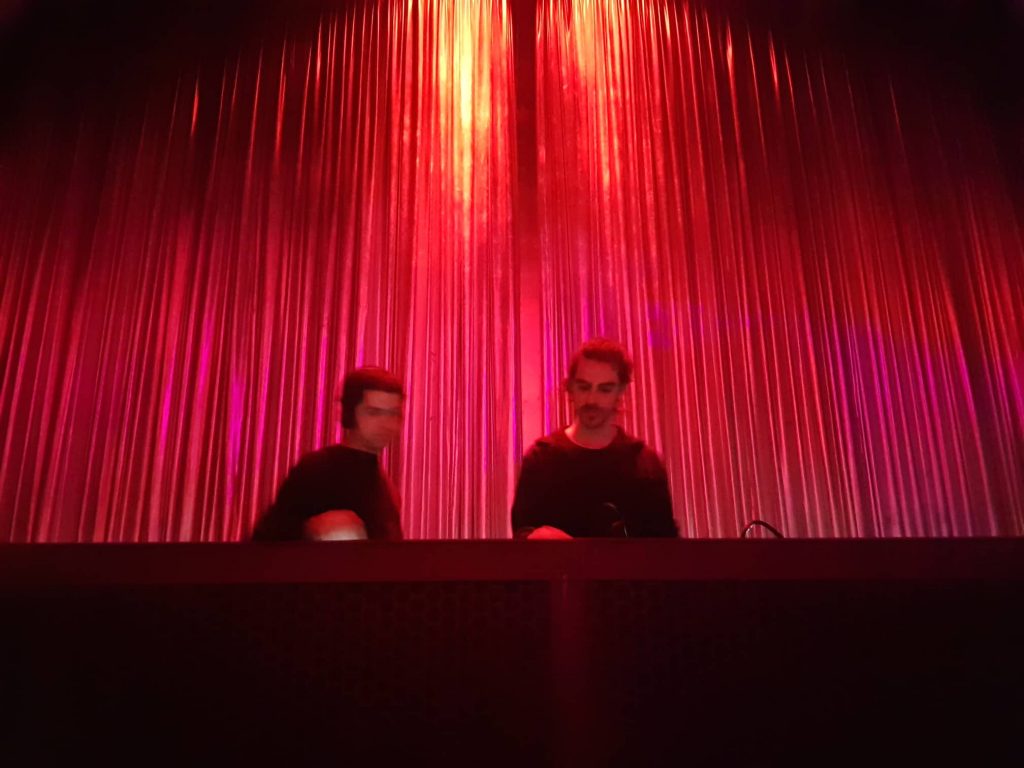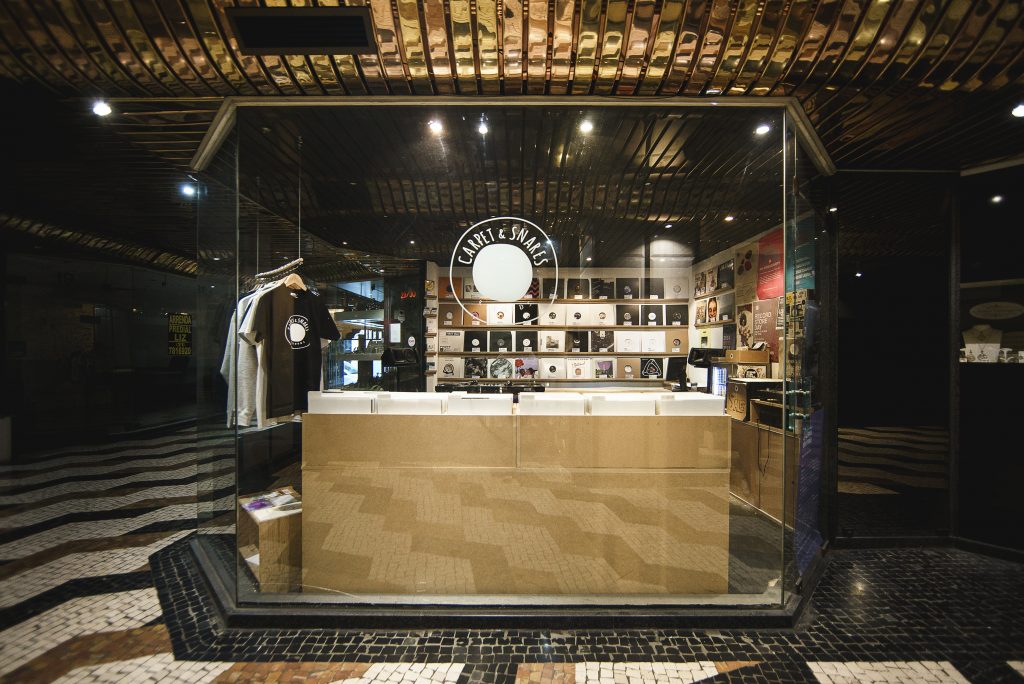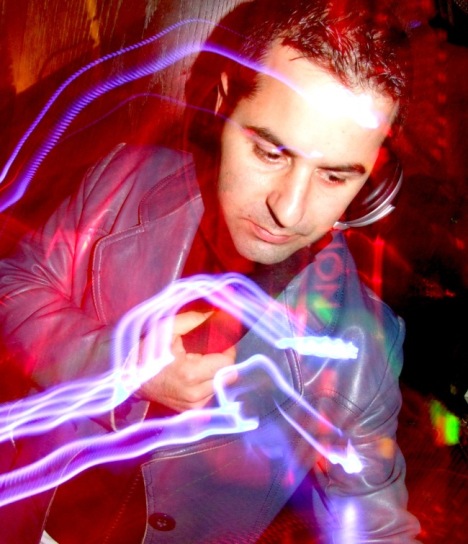
Meet Jorge Caiado (JC) & Rui Ferreira (RF), the duo putting Portuguese electronic music firmly on the map in Lisbon and beyond
Established in 2014, Carpet & Snares Records is a label and record store based in Lisbon and run and managed by Jorge Caiado with a big helping hand from his partner in crime, Rui Ferreira. It’s the result of a pluralist vision of house and techno, fuelled by Jorge’s desire to develop and express a vision that provides fans, artists and DJs with a physical space and an editorial platform. The shop has been instrumental in developing new talent via their suite of labels, sat in the midst of pool of up and coming local talent such as André Leiria and Berllioz, as well as having created synergies with established artists such as Steve O’Sullivan, Sergio Moreira and Losoul.
In March 2018 they started an agency Carpet Agency, focusing on promoting and managing new talent from the house and techno scene whilst also setting up as a record distributor as well, which is a first in Portugal for electronic music. With their ambitions set high and one of the main pillars in Lisbon’s underground scene, they’ve also been pursuing is the creation of new content with both local and international artists, through in-store sessions, a mix series and mini-documentaries.
As they see it, their goal is to develop what is already a creative hub around these projects, and also to provide the necessary infrastructures for upcoming national artists and labels to grow. With all of this in mind, we wanted to find out more about the main heads involved behind this ambitious project, and map out journey they’ve been on so far…
Where are you both from originally?
JC: “I was born in Brazil but came to Portugal when I was 7 and grew up in Povoa de Varzim, a small city beach 30km away from Porto. I studied at ESMAE in Porto and then moved to Lisbon.”
RF: “I’m from a small town near Leiria and I only moved to Lisbon in 2011 to study.”
What sort of music did you grow up with?
JC: “Mostly Brazilian music, some rock coming from my dad and some classical coming from my mum when she did the big weekly house cleaning.”
RF: “No major influences really, although some of my earliest memories are of listening to classical music in the car with my parents when we went on holiday.”
How did you find yourselves getting into electronic music?
JC:” I started listening to house music, more specifically Deep and North American soulful house when I was around 14/15. I was lucky enough to grow up in a city (Póvoa de Varzim) with a good clubbing culture for the time. The resident DJs still had an important role to play and fortunately were good. That was a great starting point for my relationship with dance music that ended up being indispensable. At 18, I went to live and study in Porto where I studied sound engineering. At 21, I moved to Lisbon to learn Jazz (piano) and to try and strengthen my career as a dj and producer. In Lisbon I got a couple of residencies early on in clubs like Frágil and Estado Líquido and began to play at some of the main clubs and festivals like Lux Frágil, Musicbox, Indústria Porto, Gare Porto, Neo-Pop, Nos Alive and SBSR…”
RF: “I only began listening to electronic music at about 18 when I bumped into Aphex Twin’s ‘Windowlicker’ on Youtube and this was in 2011, a few months before I moved to Lisbon for Uni. Many of my friends moved there that year, so I ended up moving in with one of them. We started exchanging music and developed an appetite for digging new stuff on the web, mostly chilled out stuff like hip-hop and trip-hop in the beginning, but I quickly acquired a taste for dance music too. Many times a week we’d have this same group of friends at our place where we’d all share new music, sort of like a book club but more wild, and that ended up making music a very important part of my life. This went on during my years at university and it made me addicted to listening to music and discovering new stuff. This in turn started to give me a better notion of what I was really into. I was taking a course in Logistics Management which I wasn’t into but decided to finish anyways. After that, I didn’t know what to do. I worked an internship for 4 months but quit and decided to try and find something related to dance music, where I could learn and explore what could be possible. That’s when I met Jorge. I had already visited the Carpet & Snares shop before to buy a couple of records just for the fun of owning them, so I went there one morning to ask if they needed help. When I saw they only opened on afternoons I sent a message to Jorge offering myself to open in the mornings as well. He didn’t know who I was but he asked to meet and after that, I started my adventure in 2016.”
What were the first records you bought and where from?
JC: “I remember that in the first batch of records I bought was a Cassy 12”, ‘My Auntie’ EP on Perlon. I got it at Vinyl Market, a record shop in Centro Comercial Itália in Porto where Serginho worked (one of the main DJs within the national dance scene).”
RF: “I think the first record I got was on Discogs, it was LFO’s ‘What Is House’ which I bought for the Syndrome track. From record shops, I remember getting Malvoeaux’s ‘Broken Anthem’ from Flur and Markus Nikolai’s ‘Passion/Bushes’ EP from Carpet actually.”
At what point did you start to Dj outside of your bedroom then?
JC: “At 16 I had my first residency at one my friends’ bar. He knew me well so he trusted me with the programming and also gave me a weekly night behind the decks. It was called 8|0 and located in one of the main squares of Povoa de Varzim.”
RF: “I learned to mix here at the shop as I would come an hour before opening time and just practice until someone came in. Both Jorge and Zé Salvador gave me some very useful tips and so I got the gist of beat matching quite fast. Soon after that I had the chance to play some fun gigs at Desterro, an association in Lisbon which promotes music with no boundaries, and a few months after that I played my first professional gig at Europa.”
Were there any particular influential parties or clubs you spent time at?
JC: “My first eye-openers in terms of club music were in Porto (Trintaeum, Pitch, Gare, Indústria, Passos Manuel, Maus Hábitos), I remember that the first party I started to go to religiously was “Casa, Bateria e Baixo”, and right after “Bauninha e Chocolate” from Rui Vargas. These were nights where he would play from 11pm to 6,7 or sometimes 8am in the morning. I was generally one of the first to be there and one of the last to leave! He would arrive with 3 or 4 records bags. That was the first time I heard someone play such a broad scope of music. He would start with Jazz, Funk, Disco, then onto House, some Techno and would finish off the night where he had started it. So in this sense, he was the Dj that influenced me the most, as he changed the way I listened to dance music and showed me how the role of the Dj can save lives every weekend 🙂 ”
Jorge, you went on to study sound Engineering, what made you choose this as opposed to just teaching yourself?
JC: “I was very close to studying Economics but in the last phase of applications for university my sister brought me a flyer describing this new course, and as I was already playing records and producing I thought it could be a good chance to keep doing what I liked as a career and a profession.”

And what made you decide to enter the Red Bull Music Academy?
JC: “I found out about RMBA by chance, at the time I had take a music production mini-course at Dance Planet school in Porto, who recommended me as a student for the first edition of RBMA in Portugal, which was a sort of taster as to what the academy experience is like internationally. After this national RBMA, where I had lectures with Arthur Baker, Waajeed, and Juan Atkins, I decided to apply for the international RBMA every year after that, and at the 3rd attempt I was selected.”
You’ve been releasing music since 2012, how did your link up with Chez Damier come about?
JC: “In 2010, even though I was already in Lisbon, I kept a close relationship with Trintaeum and Gare club in Porto where I was playing regularly. In the end of the year I received an email for Chez’s agent saying there was a flight share for his tour in Europe and asking if I knew any promoter or club that could be interested. My first thought was to propose it to Rui Trintaeum (the club owner), who did not hesitate to book him. I played the first part of the night and met Chez for the first time in the club. We spoke a lot and I shared with him some of the tracks I’d been making. Since that night in 2010, we’ve maintained regular contact. He always there when I need him and has been one of my main mentors since the beginning: He was and still is one of the most important people of my life, both personally and artistically. The rest is history!”
When did the idea for Carpet and Snares shop start?
JC:” In 2014, my time was divided between giving music production lessons at a school in Lisbon, capturing audio for a show on a national TV station, working on my own music in my studio, and gigs at the weekend. At the beginning of that year, I heard that a new record shop was going to open, at the time called Harborage Lisboa. It was a partnership between João Maria (Dj and booker) and the owner of Harborage Porto. The idea was to setup a shop in Lisbon that would dedicate itself mostly to House and Techno music, and oriented almost exclusively towards DJs. I already knew Joao for being an active figure in the national scene, and when I passed by the shop to check it out, I understood that he could use some help with the project, so I started working there. The partnership with Harborage Porto didn’t work out and after 2 or 3 months, there was the need for more partners to join in so we could begin a new project. That’s when Zé Salvador (another DJ with a lot of history in Portugal) and I joined João to create Carpet & Snares. After a year of getting the shop up and running, I ended up taking on the whole project alone and since then, I’ve been trying to develop something much more than just a record shop.
In 2016, I had the blessing of Rui joining the project and since then he’s been my right hand man in everything we’ve been developing. The team has kept growing and today, we’re a couple more, all helping out in the ways they can and turning Carpet into a family. Right now we have Miguel Melo helping with our projects and is also behind the counter in the afternoon, Helio (from Pandilla LTD) taking care of the distributor (Carpet Distribution), my sister Adília Lima who’s our designer, Fábio Santos who came to help us with the web side of things, Ruben José who’s been helping us out with filming and editing some mini docs we’ve created, Straka who’s helping out the agency (Carpet Agency), Joe Delon, who’s been helping us with the interviews for our mix-series, and very recently Manel Guerra who’s helping us out with social networks and the business side of things.”
What made you choose that name in particular?
JC: “We had to change the name quickly after the partnership with the other shop failed, and the idea came from one of our friends who suggested the name because the shop had just been carpeted and snares are pretty much ubiquitous in dance music. That’s where it came from.”
How does it feel to be at the head of a music scene and family now?
JC: “It feels really good to see everything growing, not just artists but the scene in general. It can be very gratifying to see the small things our daily work has positive consequences for what is being done here.”
And your local community – what’s going down in Lisbon right now?
JC: “Regarding new artists/producers, I’d highlight Luhk, Temudo, VIL, Berllioz, Zenner, Pandilla LTD, Norbak, Rompante, Caroline Lethô as some of the most exciting and hardworking players in our scene. Label wise, I’d recommend to check out Light Channel Recordings, Discos Extendes, Hayes, Discernible among others. On the club side of things, I’d highlight Europa (where we do our monthly party), Village Underground Lisbon, 5A club (the new micro club in town) and of course Lux-Frágil (for being one of the best clubs in the world and opened for more than 20 years).”
What are your favourite pieces of music you’ve released so far?
JC: “That’s a tough one, but recently we had a record store day release RSD19. It was a very spontaneous release where all the tracks were from emerging national artists. Also, CARPET03 as I think it’s a record that will be rediscovered in the future, and also for being Pedro Rodrigues’ (Berllioz) debut EP. He is one of the most talented in this new wave of Portuguese artists. Pretty much all of the records we’re putting out have their own stories. More recently we’ve started some new label series, where we can explore some sub-genres and types of sound in a more highlighted way, so all of those also carry some special weight to us. Putting out a record from an artist is special if they’re young, or started out making music not long ago. It’s always a moment that leaves me happy as a I feel that I’m contributing in someway to the launch or maturing of this person’s artistic development.”
RF: “Two of my favourites of this year were DJ Chupacabra’s “Country Business” and VIL’s “Commander”. I’ve also been listening on repeat to orge Caiado’s “Feeling You” track from his new EP for Carpet & Snares Records. From Dream Ticket, it’s hard to choose as I really like all of them but the next one from Ryan James Ford is really special for me.”
With 5 years behind you now, how do you see things developing next?
JC: “We have many goals set, like the maturing of the artists we’re releasing, keeping our doors open to new talent who wants to work and collaborate with us. Turning the shop into a reference point for any electronic music lover in Lisbon, exporting artists through the agency to showcase the best of what’s being done in here, establishing the distributor as a valid service for those who want to start vinyl labels here, and in general consolidating everything we’ve been creating up until now. Apart from this, we’ve got our hands on some amazing music from amazing artists, so expect some new killer records soon!”
RF: “Release more music, play more, do more for the sustainability of this scene!”




